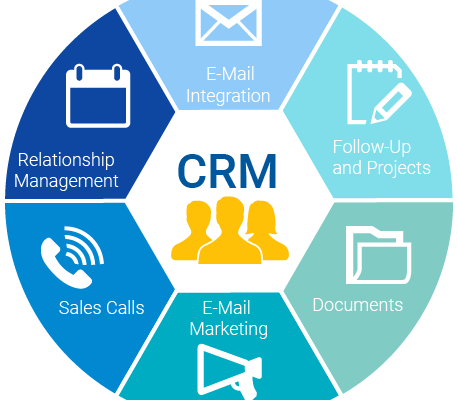
Customer relationship management (CRM) is a broad term that encompasses the strategies, processes, and technologies used by businesses to manage and analyze customer interactions. The goal of CRM is to improve customer service, increase sales, and boost customer loyalty.
CRM systems typically include the following features:
- Contact management: CRM systems allow businesses to store and manage customer contact information, including name, address, phone number, email address, and social media profiles.
- Sales management: CRM systems can help businesses track leads, opportunities, and sales. They can also automate tasks such as generating quotes and sending follow-up emails.
- Customer service: CRM systems can help businesses track customer service interactions, such as tickets, calls, and emails. They can also automate tasks such as sending out surveys and responding to customer feedback.
- Marketing automation: CRM systems can help businesses automate marketing campaigns, such as email marketing and social media marketing. They can also track the results of marketing campaigns and identify which campaigns are most effective.
CRM can be implemented in a variety of ways, depending on the size and needs of the business. Some businesses choose to implement a CRM system on-premises, while others choose to use a cloud-based CRM system.
There are many benefits to implementing CRM, including:
- Improved customer service: CRM systems can help businesses provide better customer service by providing customer service representatives with access to customer information and history. This allows customer service representatives to resolve customer issues more quickly and efficiently.
- Increased sales: CRM systems can help businesses increase sales by providing sales representatives with insights into customer needs and preferences. This allows sales representatives to tailor their sales pitches to each individual customer.
- Boosted customer loyalty: CRM systems can help businesses boost customer loyalty by providing customers with a personalized experience. This can be done by sending out birthday cards, offering discounts, and providing VIP treatment.
CRM is a valuable tool for businesses of all sizes. By implementing CRM, businesses can improve customer service, increase sales, and boost customer loyalty.
Here are some additional benefits of CRM:
- Increased efficiency: CRM systems can help businesses automate many of the tasks involved in customer service, sales, and marketing. This can free up employees to focus on more strategic initiatives.
- Improved decision-making: CRM systems can provide businesses with valuable insights into their customers and their business. This information can be used to make better decisions about product development, pricing, and marketing campaigns.
- Reduced costs: CRM systems can help businesses reduce costs by streamlining operations and improving efficiency.
If you’re considering implementing CRM, there are a few things you should keep in mind:
- Choose the right CRM system: There are many different CRM systems on the market, so it’s important to choose one that’s right for your business. Consider your needs, budget, and the size of your business when making your decision.
- Get buy-in from your team: CRM is only as effective as the people who use it. Make sure your team is on board with the CRM system and understands how to use it.
- Implement CRM properly: CRM systems can be complex, so it’s important to implement them properly. This includes training your team on how to use the system and providing them with the resources they need.
CRM is a powerful tool that can help businesses improve customer service, increase sales, and boost customer loyalty. If you’re not using CRM, you’re missing out on a valuable opportunity to improve your business.

